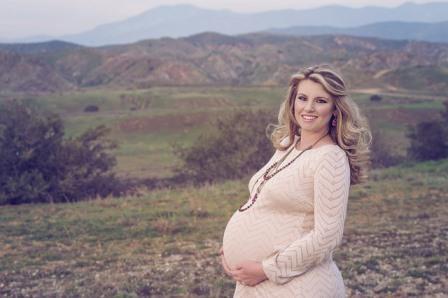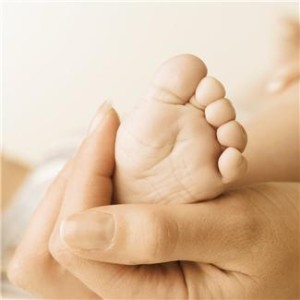- Calls to this hotline are currently being directed to Within Health, Fay or Eating Disorder Solutions
- Representatives are standing by 24/7 to help answer your questions
- All calls are confidential and HIPAA compliant
- There is no obligation or cost to call
- Eating Disorder Hope does not receive any commissions or fees dependent upon which provider you select
- Additional treatment providers are located on our directory or samhsa.gov
Hope for Fertility in Eating Disorder Recovery

The risks that an eating disorder can present to reproductive health are commonly talked about, which can generate fear with the struggling individual. However, there is hope for fertility in eating disorder recovery.
Feelings of hopelessness and helplessness likely arise as the sufferer battles the demon of their eating disorder. They are wanting so badly to recover and begin planning for a family but feeling unsure if they will ever get there.
The good news is, struggling with an eating disorder does not mean that a future with children of your own is impossible.
Confusing Science of Fertility in Eating Disorder Recovery
Eating disorders undoubtedly impact your bodily functions, and understandably, do so more severely when in the throes of the eating disorder.
 As one works toward recovery, many of those body functions can improve and even return to normal.
As one works toward recovery, many of those body functions can improve and even return to normal.
Science seems to disagree on whether this is the case for fertility in eating disorder recovery.
Some studies maintain that women with a history of eating disorders are more likely to experience reproductive issues and require fertility treatment to conceive [1].
However, others suggest that “a history of anorexia nervosa does not affect the ability to conceive later in life [1].
Additionally, one study considered the idea that the discussion of risks of infertility is more sociological than medical, pointing to the current ideology of the time.
This study posits that these risk discussions can be harmful, as they imply that, because of the possible risks to fertility, women should want to, and successfully, stop engaging in disordered eating [1].
This assumes that disordered eating is a choice, which is untrue and reductive of the struggle of experiencing an eating disorder.
Even so, a discussion of the risks is important, and mental and medical health professionals are considering how to best communicate this information accurately without stigmatization.
The Mindset of Eating Disorders and Reproduction
These varying research results contribute to the current belief that fertility is “affected but not significantly compromised [1].” Now, it is up to you how you interpret these results.
Some may interpret this as a “glass half empty.” They may embrace the feelings of fear because their fertility may be affected. Or, their fertility treatments might be a part of their family planning.
If this is you, I encourage you to work toward changing your thinking to “glass half-full.”
Studies show that negative emotions such as stress and frustration can also have an impact on fertility. So, embracing an outlook that places less pressure on you could work in your favor [2].
We cannot change the impact your eating disorder has had on your body, but your body and mind have bravely and boldly overcome an ugly and harrowing disorder.
If this does not prove that you and your body are capable of miracles, I don’t know what is! You are a recovery warrior and will continue to heal, grow, and overcome any challenges thrown your way.
Your journey to a family might exactly look as you always imagined it. It might not.
 In eating disorder recovery, we learn to be less focused on controlling the small details.
In eating disorder recovery, we learn to be less focused on controlling the small details.
We learn to embrace our ability to thrive through challenging uncertainties.
We don’t know what this journey will look like for you, but trust, as you have through your recovery, that you will be okay, no matter what.
Resources:
[1] Holmes, S. (2018). Responses to warnings about the impact of eating disorders on fertility: a qualitative study. Sociology of Health & Illness, 40:4. [2] Dong, Y. et al. (2017). The effect of fertility stress on endometrial and subendometrial blood flow among infertile women. Reproductive Biology & Endocrinology, 15:1. About the Author:
About the Author:
Margot Rittenhouse, MS, PLPC, NCC is a therapist who is passionate about providing mental health support to all in need and has worked with clients with substance abuse issues, eating disorders, domestic violence victims, and offenders, and severely mentally ill youth.
As a freelance writer for Eating Disorder Hope and Addiction Hope and a mentor with MentorConnect, Margot is a passionate eating disorder advocate, committed to de-stigmatizing these illnesses while showing support for those struggling through mentoring, writing, and volunteering. Margot has a Master’s of Science in Clinical Mental Health Counseling from Johns Hopkins University.
The opinions and views of our guest contributors are shared to provide a broad perspective on eating disorders. These are not necessarily the views of Eating Disorder Hope, but an effort to offer a discussion of various issues by different concerned individuals.
We at Eating Disorder Hope understand that eating disorders result from a combination of environmental and genetic factors. If you or a loved one are suffering from an eating disorder, please know that there is hope for you, and seek immediate professional help.
Published August 2, 2019, on EatingDisorderHope.com
Reviewed & Approved on August 2, 2019, by Jacquelyn Ekern MS, LPC

The EatingDisorderHope.com editorial team comprises experienced writers, editors, and medical reviewers specializing in eating disorders, treatment, and mental and behavioral health.


